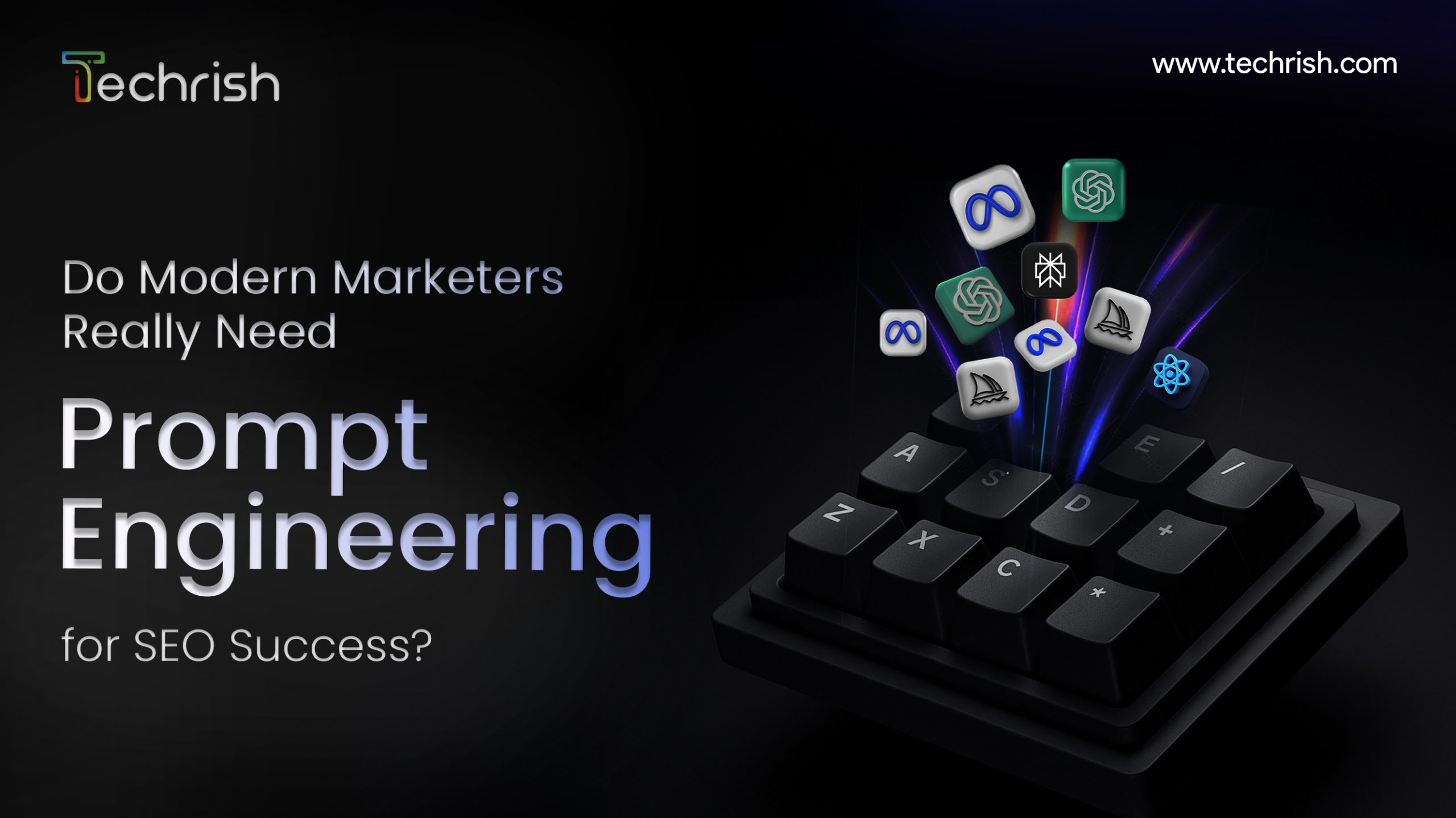The SEO landscape is changing at lightning speed. Traditional tactics like keyword stuffing and basic link-building are no longer enough to stay competitive. Today, AI has become a powerful ally for marketers, capable of generating content, analyzing trends, and uncovering opportunities that were once time-consuming or impossible to spot.
Enter prompt engineering the skill of designing precise instructions for AI tools to get exactly the output you need. It’s not just a tech skill; it’s becoming a strategic advantage in modern SEO. Marketers who master it can create more targeted content, discover valuable keywords, and optimize campaigns faster than ever.
Prompt Engineering the Key to Smarter SEO
As digital marketing becomes increasingly driven by AI, the success of SEO strategies now hinges on how effectively these tools are utilized. This is where prompt engineering comes in the skill of crafting precise, thoughtful inputs that guide AI to produce exactly the content or insights you need. Think of it as giving AI a roadmap instead of just a vague direction; the clearer the instructions, the more accurate and actionable the output.
For SEO, prompt engineering can be a game-changer. It allows marketers to generate content optimized for search engines, including blog posts, landing pages, and product descriptions, all aligned with target keywords and user intent. Beyond content creation, it helps extract valuable keyword ideas and content strategies, uncovering opportunities that might otherwise go unnoticed. It can also produce meta descriptions, headlines, and FAQs that are designed to improve rankings, click-through rates, and overall website performance. Marketers who master prompt engineering gain several advantages:
- Targeted content creation: Generate blog posts, landing pages, or FAQs tailored to specific keywords and audience needs.
- Efficient keyword discovery: Identify long-tail opportunities and trending search queries faster than traditional research methods.
- Faster content optimization: Update meta tags, headings, and internal links at scale without compromising quality.
- Data-driven insights: Analyze competitors’ content strategies and market trends to make informed SEO decisions.
- Consistent brand voice: Maintain uniform messaging across blogs, social media, and other digital channels.
Quality, Transparency, and Trust in AI Content
As AI becomes a core part of SEO and content marketing, maintaining ethical standards and quality control has never been more important. While AI tools can produce content at incredible speed and scale, they still require human oversight to ensure accuracy, originality, and brand integrity.
Marketers must find the right balance between AI efficiency and human creativity. AI can streamline tasks like keyword research, content outlines, or first drafts, but it can’t always capture tone, context, or nuanced brand messaging. Without review, AI-generated text may include factual errors, repetitive phrasing, or outdated information that could harm credibility and trust.
Another critical consideration is avoiding plagiarism and low-quality content. Search engines like Google are increasingly prioritizing authenticity, expertise, and human value in their ranking algorithms. Copy-pasted or unedited AI outputs can trigger penalties, reducing visibility and long-term SEO performance. To prevent this, marketers should always verify AI-generated material, cite reliable sources, and use plagiarism detection tools before publishing.
How AI and Prompt Engineering Will Redefine 2026?
As search engines evolve, AI and prompt engineering are set to reshape how marketers approach SEO. The future will move beyond keywords toward intent-driven, predictive optimization, where AI interprets user behavior, context, and conversation to deliver smarter results. Prompt engineering will become a key skill, helping marketers guide AI to create high-performing content, uncover insights, and personalize user experiences at scale.
Those who master it will have a competitive advantage using AI not just for automation, but for strategic creativity and precision. Another major shift will come from the fusion of AI with voice search and semantic SEO. As conversational queries grow, AI prompts will help craft more natural, question-based content that mirrors how people speak and search. In short, the future of SEO isn’t about replacing human expertise, it’s about enhancing it through intelligent collaboration with AI.







 u
u